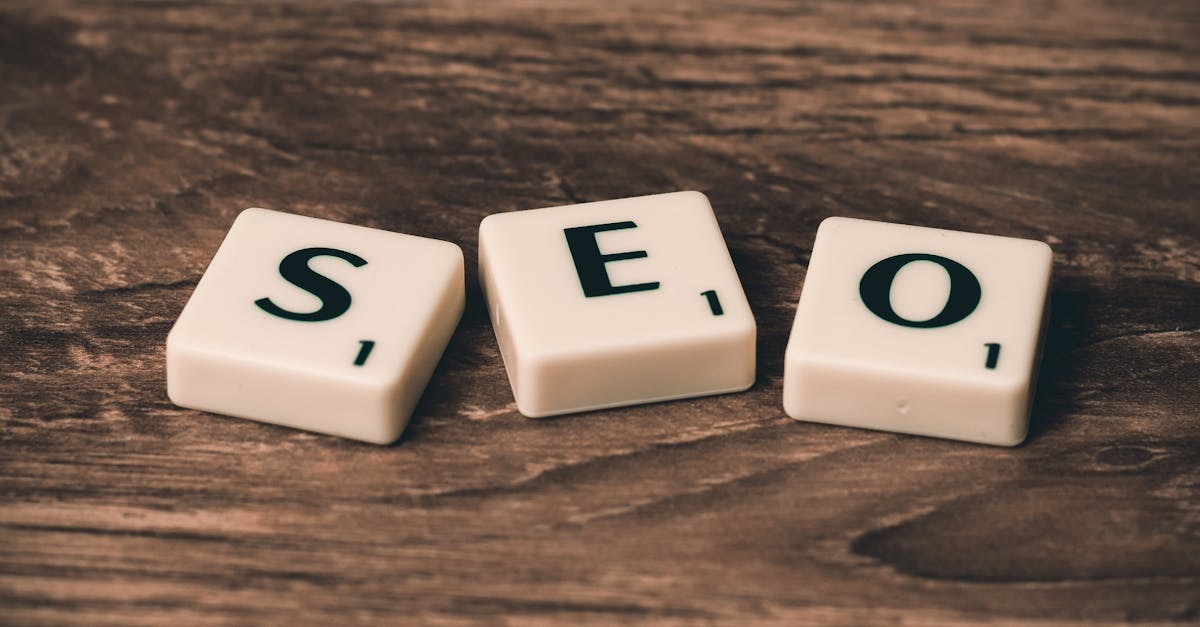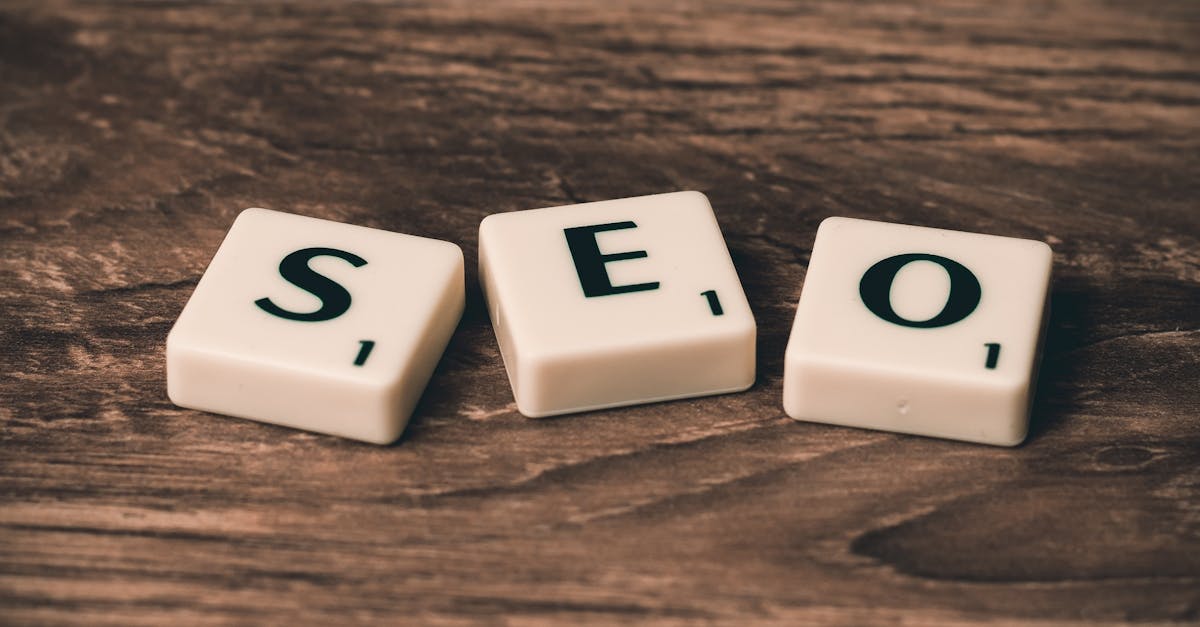
Table Of Contents
OffPage SEO Factors
Off-page SEO factors refer to the elements that influence your website's search engine rankings from outside your own site. These factors play a critical role in building the site's authority and credibility. Activities such as link building, social media engagement, and influencer partnerships can enhance visibility and drive traffic. Quality backlinks from reputable sources signal to search engines that your content is valuable, which can improve its overall ranking.
Another important aspect of off-page SEO involves brand mentions and online reputation management. When your brand is discussed across forums, blogs, and social media platforms, it can enhance your site's credibility. Search Engine Optimization (SEO) also benefits from community interactions and user-generated content, which foster trust and engagement. Ultimately, a well-rounded off-page strategy complements on-page efforts, making it essential for effective SEO.
How External Links Enhance Page SEO
External links play a crucial role in Search Engine Optimization (SEO) by signalling to search engines that a webpage is a credible source of information. When a website includes links to high-quality and relevant external sites, it enhances its own authority. Search engines evaluate these connections and may rank the page higher as a result. This not only boosts the overall SEO performance of the page but also encourages users to explore related content further.
Moreover, incorporating external links improves user experience by guiding visitors to additional resources and information. This engagement can lead to longer site visits, which positively influences SEO rankings. Additionally, when linked sites reciprocate by linking back, it creates a beneficial relationship that can enhance visibility across multiple platforms. In the competitive landscape of digital content, utilising external links is an effective strategy to strengthen your site's presence and performance in search results.
Technical SEO Considerations
Technical SEO is a critical component of Search Engine Optimization (SEO) that focuses on the backend structure and functionality of a website. This includes optimising elements such as site speed, mobile responsiveness, and secure connections via HTTPS. Ensuring that your website is well-structured enables search engines to crawl and index the content more effectively, improving visibility in search results.
Another important aspect of technical SEO is the implementation of XML sitemaps and robots.txt files. These tools provide clear pathways for search engines, guiding them on how to navigate and prioritise the pages on your website. Additionally, addressing issues like broken links and duplicate content contributes significantly to the overall health of your site, enhancing user experience and bolstering SEO efforts.
Ensuring Your Website is Crawlable and Indexable
Crawlability and indexability are crucial components of effective Search Engine Optimization (SEO). Websites need to be structured in a way that allows search engine bots to navigate and understand the content. This involves utilising a clear site architecture, optimising internal linking, and creating a comprehensive sitemap that guides these bots through various pages. Ensuring that your website's robots.txt file is correctly configured can prevent accidental blocks that hinder crawling.
Indexability refers to the ability of search engines to include web pages in their ranks. It is vital to avoid common pitfalls that may lead to indexing issues, such as duplicate content and incorrect canonical tags. Implementing meta tags that instruct search engines on how to handle specific pages can further enhance indexability. Regularly monitoring your site for crawl errors using tools like Google Search Console will help maintain optimal Search Engine Optimization (SEO) performance.
Measuring SEO Success
Measuring the success of Search Engine Optimization (SEO) efforts is crucial for any website aiming to improve its online presence. Various metrics can be employed to gauge the effectiveness of SEO strategies, including organic traffic, keyword rankings, and conversion rates. Tracking these metrics over time helps identify trends and areas needing improvement, enabling businesses to make informed decisions regarding their digital marketing efforts.
Key Performance Indicators (KPIs) play a significant role in this measurement process. Metrics such as bounce rate, dwell time, and click-through rate provide insights into user engagement and content effectiveness. By focusing on these KPIs, website owners can better understand how visitors interact with their content and adjust their SEO strategies to enhance user experience and ultimately drive more traffic to their site.
Key Performance Indicators to Monitor
Key performance indicators (KPIs) play a crucial role in assessing the effectiveness of your Search Engine Optimization (SEO) efforts. Metrics such as organic traffic, bounce rate, and average session duration offer insights into user engagement and the overall performance of your website. Tracking these KPIs allows you to identify which pages are performing well and which may require optimisation to enhance user experience and visibility on search engines.
Another important KPI to monitor is the conversion rate, which measures the percentage of visitors who complete a desired action. This might include signing up for a newsletter, making a purchase, or filling out a contact form. Additionally, monitoring keyword rankings can provide valuable information about how well your site is optimised for specific search terms. By consistently analysing these indicators, you can make informed decisions to improve your Search Engine Optimization (SEO) strategies.
FAQS
Do I need SEO on every page of my website?
Yes, it's beneficial to implement SEO on every page to improve overall visibility and ensure each page can attract relevant traffic.
What are the most important SEO factors to consider for each page?
Key factors include on-page elements like keywords, content quality, meta tags, and image optimisation, as well as off-page factors such as backlinks and social signals.
How do external links impact the SEO of a page?
External links can enhance a page's authority, helping to establish trustworthiness and relevance in search engines, which can improve rankings.
What does it mean for a website to be crawlable and indexable?
A crawlable and indexable website allows search engine bots to access, read, and include your pages in their search index, which is essential for appearing in search results.
How can I measure the success of my SEO efforts on individual pages?
You can measure success through key performance indicators (KPIs) such as organic traffic, bounce rate, conversion rate, and keyword rankings.

















































